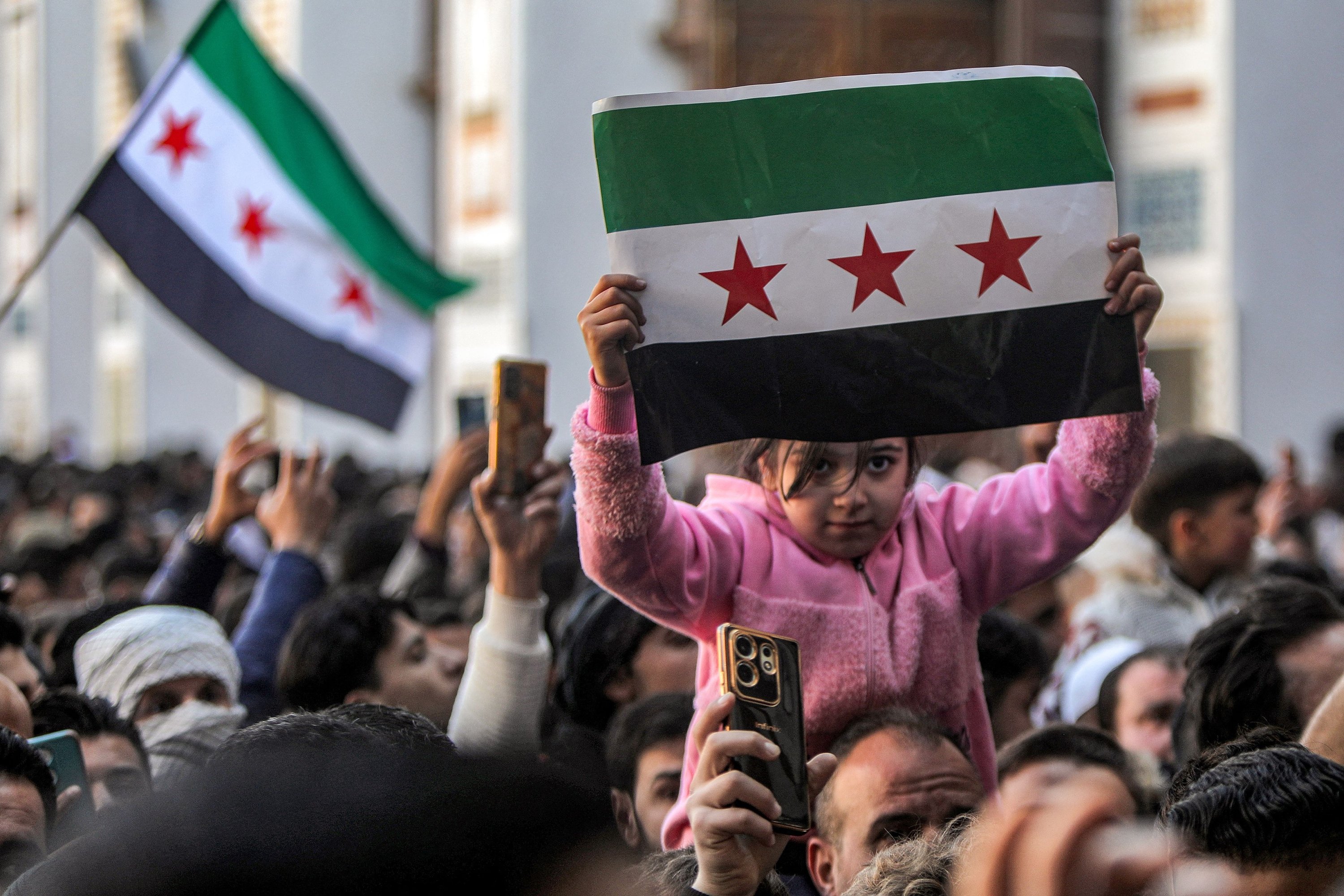DAMASCUS — Thousands of jubilant Syrians flooded the streets of Damascus to celebrate the fall of President Bashar al-Assad’s regime, marking a historic turning point in the country’s civil war.
This unprecedented scene unfolded during the first Friday prayers since the ouster of Assad, whose family had ruled with an iron fist for over five decades.
After a swift anti-regime offensive led by the Hayat Tahrir al-Sham (HTS) group, Assad fled Syria, bringing an abrupt end to a brutal era that claimed more than 500,000 lives and displaced millions.
On Friday, Syrians poured into the Umayyad Mosque, a symbol of Damascus’ rich history, raising the three-star Syrian independence flag that had been suppressed during Assad’s reign.

“We are happy to be free, liberated from the prison we lived in,” said Nour Thi al-Ghina, 38, as she joined the celebratory crowd. “This is the first time we have come together in such numbers, witnessing such an event.”
Echoing the sentiment, Omar al-Khaled, 23, expressed hope for a brighter future.
Meanwhile, in Aleppo, once a battleground, a huge billboard of Assad and his father Hafez was set ablaze by jubilant protesters.
“They oppressed us, but today we’ve freed our country from their injustice,” said a white-bearded policeman, holding a red rose given to him by a child.
In the southern city of Sweida, where anti-government protests had simmered for over a year, celebrations erupted, with people singing and dancing in the streets.
“Our joy is indescribable,” said Haitham Hudeifa, 54, as the festive mood spread across the country.
Despite these celebrations, the international community faces a complex situation.
The Group of Seven (G7) nations have pledged support for a “non-sectarian” government but have also emphasized the need to hold Assad’s regime accountable for its crimes, particularly human rights abuses.
In the aftermath of Assad’s downfall, Syrians are desperate to uncover the fates of the many who vanished under his regime.
Families scour prisons, hospitals, and morgues, hoping for answers.
Abu Mohammed, desperately searching for his missing relatives, said, “I turned the world upside down, but found nothing. We just want a hint of where they are.”
The departure of Assad has shifted regional dynamics.
While Russia and Iran had propped up Assad’s regime, anti-regime forces launched their final offensive in late November, coinciding with a ceasefire between Israel and Hezbollah.
Now, Israel and Türkiye have both launched military actions within Syria, with Israel occupying a U.N.-patrolled buffer zone in the Golan Heights, citing security concerns.
In response to the situation, U.S. Secretary of State Antony Blinken stressed the importance of preventing further conflicts and ensuring Syria does not become a base for terrorism.
Meanwhile, Israel’s Defense Minister announced that Israeli troops are prepared to remain in the buffer zone throughout the winter, as air and naval strikes continue to target Syrian military assets.
Amid these developments, Syrians face the harsh realities of a war-torn country grappling with sanctions, inflation, and a struggle for basic necessities.
In a move to address the dire humanitarian crisis, the European Union (EU) announced the launch of an “air bridge” to deliver 50 tonnes of health supplies to Syria.
C. Daily Sabah

